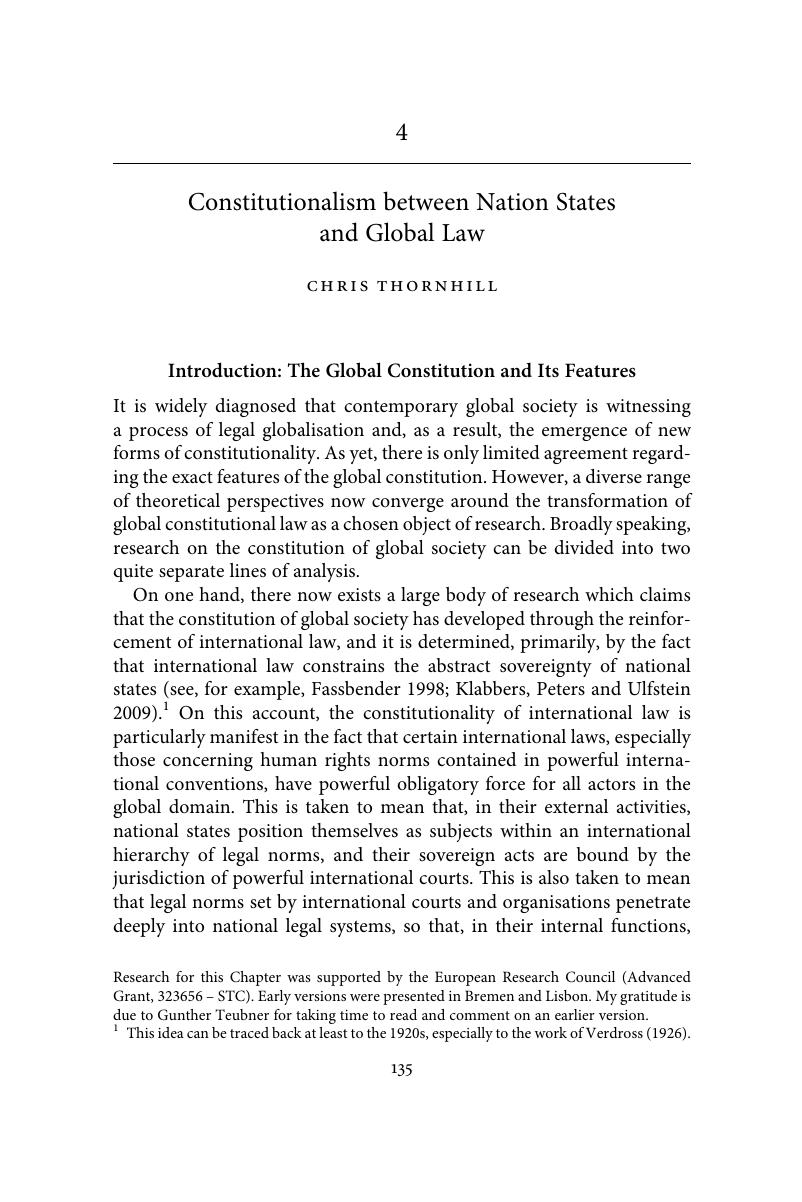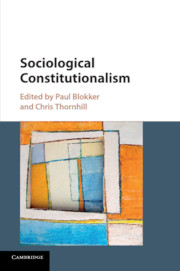Book contents
- Sociological Constitutionalism
- Sociological Constitutionalism
- Copyright page
- Contents
- Figures and Tables
- Contributors
- Acknowledgements
- Sociological Constitutionalism
- Part I National Constitutions and Sociological Method
- Part II Constitutional Sociology between the National and the Transnational
- 4 Constitutionalism between Nation States and Global Law
- 5 Politics and the Political in Sociological Constitutionalism
- 6 Constitutions as Symbolic Orders
- 7 The Rule of the Market
- Part III Constitutional Law and Transnational Society
- Index
- References
4 - Constitutionalism between Nation States and Global Law
from Part II - Constitutional Sociology between the National and the Transnational
Published online by Cambridge University Press: 06 October 2017
- Sociological Constitutionalism
- Sociological Constitutionalism
- Copyright page
- Contents
- Figures and Tables
- Contributors
- Acknowledgements
- Sociological Constitutionalism
- Part I National Constitutions and Sociological Method
- Part II Constitutional Sociology between the National and the Transnational
- 4 Constitutionalism between Nation States and Global Law
- 5 Politics and the Political in Sociological Constitutionalism
- 6 Constitutions as Symbolic Orders
- 7 The Rule of the Market
- Part III Constitutional Law and Transnational Society
- Index
- References
Summary

- Type
- Chapter
- Information
- Sociological Constitutionalism , pp. 135 - 177Publisher: Cambridge University PressPrint publication year: 2017
References
- 3
- Cited by



